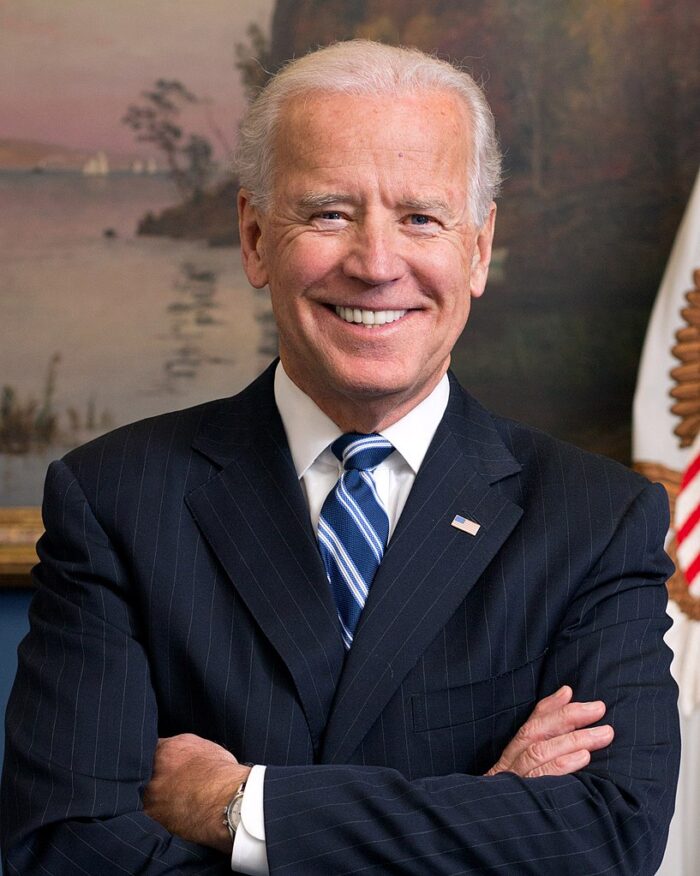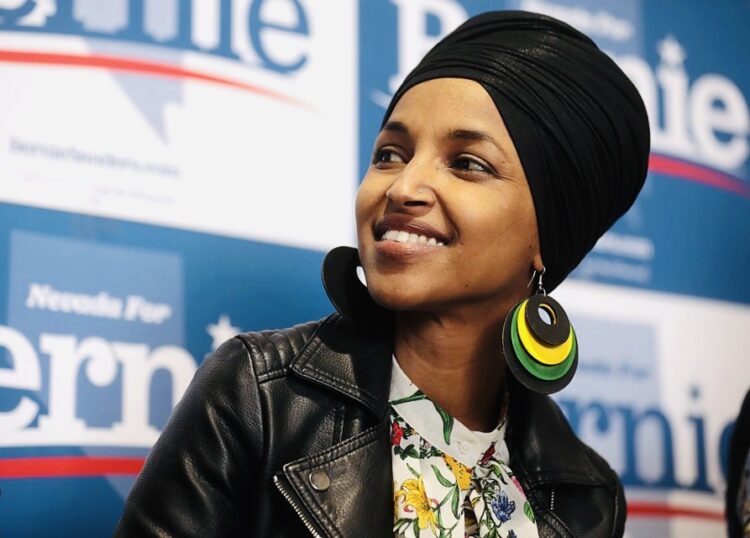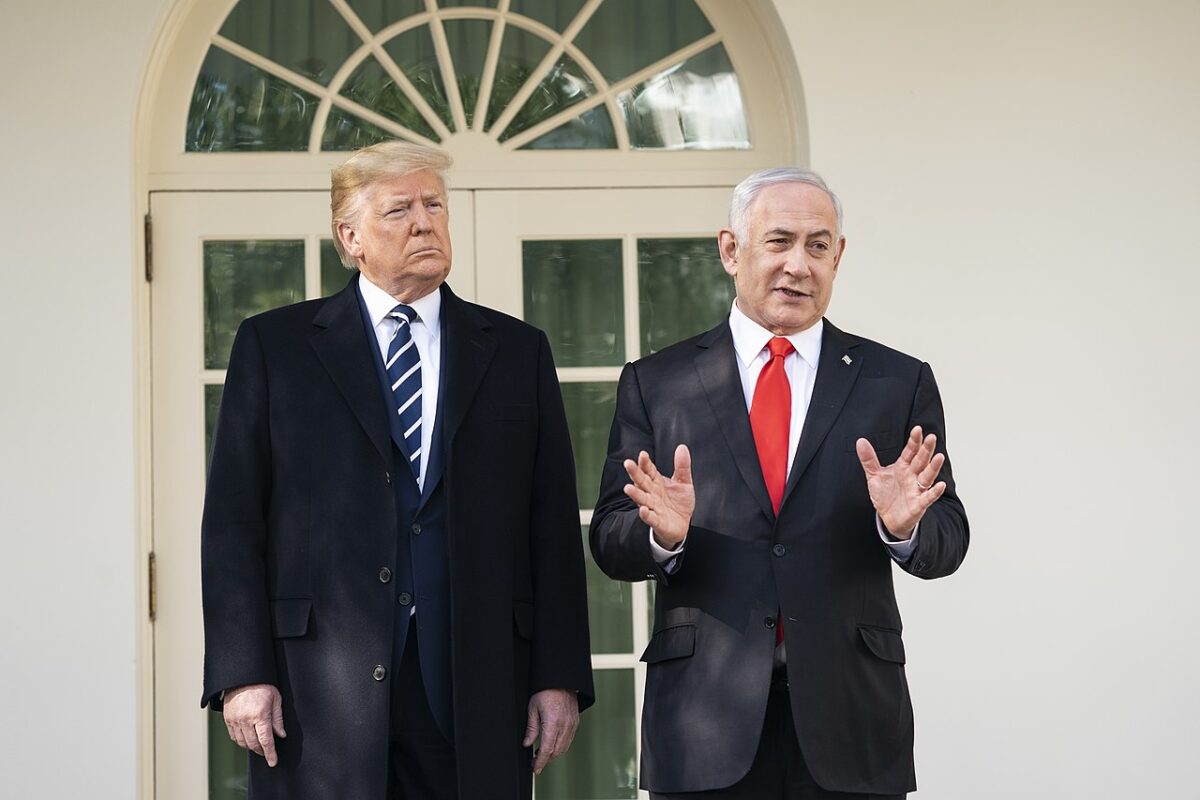Donald Trump is doing it again, conflating American Jews with Israelis and blurring the line between his duties as president and the needs of his reelection campaign.
In a phone call with Jewish communal leaders on the eve of Rosh Hashanah, he voiced praise for Jews in the United States. “We really appreciate you,” he said. But then he raised eyebrows by adding, “We love your country also.” Trump, of course, was referring to Israel, America’s ally in the Middle East.
Trump’s conflation of American and Israeli Jews may not have been deliberate, but merely a careless slip of his loose tongue. Yet as he continued speaking, he made precisely the same faux pas, describing his Jewish son-in-law and senior advisor, Jared Kushner, as “an unbelievable leader for Israel.”
The president’s comments, though presumably well intentioned, feed into the antisemitic myth that Jews are bound by dual loyalties and are essentially untrustworthy. At a time when anti-Jewish conspiracy theories are surging, particularly on the internet, this was the worst possible moment to imply that Jewish Americans are not real Americans.

Trump also stumbled into a minefield when he suggested that Israel would suffer if he failed to defeat his Democratic rival, Joe Biden, in the forthcoming presidential election.
As he put it, “I have to say this, whatever you can do in terms of November 3 is going to be very important, because if we don’t win, Israel is in big trouble. This is really a time that’s very important in the life of Israel and the safety of Israel. And we will do a great job. If the other side gets in, all bets are off. I think it’ll be a whole different story. I think it’ll be exactly the opposite.”
What Trump was obliquely suggesting is that Israel’s well-being and existence hinge on his continued presidency. This is an absurd and self-serving notion, underpinned by his ridiculous claim that Israel’s informal alliance with the United States can only be guaranteed by the Republican Party, and that the Democratic Party is turning against Israel.
As he must surely know, Israel is a bipartisan cause in the U.S. Congress, though a handful of Democrats in the party’s progressive wing, like Rashida Tlaib and Ilhan Omar, are demonstrably pro-Palestinian.

In his Rosh Hashanah message, Trump unleashed another bomb. “We’re in the Middle East because of Israel,” he claimed in an ill-disguised bid to curry favor with his Jewish listeners.
Israel’s security is a cardinal goal of U.S. policy in the region, but as Trump doubtless realizes, American interests transcend the protection of Israel. The uninterrupted flow of oil from Arab states to the West underpins Washington’s approach to the Middle East, though it is true that the United States is much less reliant on Arab oil today than in the past.

Cognizant that three-quarters of Jewish voters cast their ballots for Hillary Clinton, the Democratic candidate in the 2016 election, and that a recent poll indicates that Biden is on track to win 67 percent of Jews’ vote come November, Trump said, “I hope you can do better with that.”
Confessing he is mystified by his failure to have won a larger share of the Jewish vote in the last election, Trump made a shameless appeal for Jewish support.

Invoking Kushner, his daughter Ivanka — a convert to Judaism — and his “beautiful grandchildren that are Jewish,” Trump expressed puzzlement why he received only 25 percent of the Jewish vote four years ago. In the same vein, he voiced amazement that Jews have historically favored the Democratic Party over his own Republican Party.
Trump’s inappropriate and misleading observations, as well as his unsettling foray into crass identity politics, were hardly surprising.
Last year, in a reference to Prime Minister Benjamin Netanyahu of Israel, Trump told the Republican Jewish Coalition, “I stood with your prime minister at the White House to recognize Israeli sovereignty over the Golan Heights.”
Not long afterward, in an attempt to discredit the Democratic Party, he said, “In my opinion, the Democrats have gone very far away from Israel. I cannot understand how they can do that. They don’t want to fund Israel. They want to take away foreign aid to Israel. They want to do a lot of bad things to Israel. In my opinion, you vote for a Democrat, you’re being very disloyal to Jewish people and very disloyal to Israel.”
In addition, Trump claimed that Jews who are partial to the Democrats either display “a total lack of knowledge or great disloyalty.”
Several months after unloosing these baseless claims, Trump told the Israeli-American Council’s annual conference that Jews must support his reelection because there is no alternative.
Trump has indeed been supportive of Israel and Netanyahu’s right-wing Zionist Revisionist agenda, but to suggest that the Republicans are the sole American political party that Israel can rely on is unadulterated nonsense.
Beset by a coronavirus pandemic, a sagging economy and nation-wide street protests advocating racial justice, Trump fears he may lose the election. Driven by this imperative, he has been trying to woo a greater proportion of Jewish voters.
It’s not an unreasonable tactic, but his remarks in pursuit of this overarching objective are disquieting and potentially dangerous.
